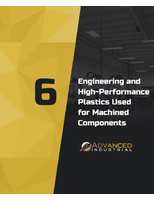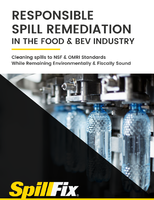Reasons Why Quality Procedures for Injection Molding are Necessary

Original Equipment Manufacturers (OEM's) are consolidating supplier lists to make it easier to manage new requirements for regulation. Suddenly better needs to win over less costly.
Anytime a company's name is connected to a product, the name and the product's quality are inseparable-regardless if that name is Ford Motor Company, Toshiba or Hoover. Even though names may not go on the final product, such as with some plastic injection molding products, quality remains equally important to the companies that supply the parts.
Denise Dion consults for EduQuest Inc., a consulting firm targeting medical regulatory compliance issues. Dion says OEM's are trying to shrink their supplier lists. She says they are doing this because companies are required to qualify and monitor their suppliers--a much easier thing to do with smaller lists of suppliers.
With OEM's trying hard to shrink supplier lists, there is a much greater emphasis on quality at the contract supplier level. Suppliers providing parts such as plastic injection molding components are cutting cost at the expense of quality. Suppliers will soon realize this can help the bottom line in the short term, but eventually you're going to end up losing customers.
Risk and Regulation
Kari Miller is the senior director of Industry Solutions and Product Management working for Pilgrim Software Inc. She stated recently that there are two primary reasons for a greater focus on quality; the U.S. Food and Drug Administration (FDA) and other regulatory agencies--and risk.
She notes that the FDA is keenly focused on quality more than ever before. Mostly because of the high-profile accidents like tainted Heparin, caused by supply-chain quality problems.
Anytime companies combine the outsourcing trend with the fact that extended supply-chains like plastic injection molding parts and components are further from the FDA's reach, case studies show it was extended supply chains that went awry. These facts have the agency paying very close attention.
How This Effects the Plastic Injection Molding Industry
Timothy Lozier is marketing manager for EtQ Inc., a leading provider of quality management for compliance software solutions. Lozier says many companies are having quality-related problems. Because of this the FDA is trying to solve the problems through the importer. They do this because approaching the foreign manufacturer is too expensive and time-consuming.
The FDA feels the importer should control the quality of the products and parts they import. This places more emphasis on OEM's ensuring their suppliers are within quality systems regulations (QSR) and that compliance means a genuine commitment to 'real' quality.
The FDA simply doesn't have enough resources to inspect all overseas suppliers. Many U.S.-based OEM's are performing on-site QSR audits and reviewing quality systems for true commitments to quality.
Today audits are focused on:
· Design control
· Product testing
· CAPA (corrective and protective actions) systems
The Layered Tiers of Today's FDA Audits
Audits today are multiple layers of controls for quality in order to reduce risk. It starts with an initial supplier-quality audit. The review goes like this:
· contractual control with supplier agreements
· risk management classifications for that supplier
· risk-based auditing
· maintaining supplier data (it's really important to maintain that data)
· implementation of corrective action plans
If there isn't good quality, that lack of quality is much more costly than maintaining personnel or systems and even more than doing audits. This is because it costs money to rework or scrap material - lines shut down, supplies dry up, and then there are freight costs, recalls and potentially even penalties if you fail an audit.
Validation of Supplier Processes
Suppliers are now held responsible for making certain that all their processes are validated. They have to have high-quality systems in place for things like:
· product risk management
· CAPA's
· design change control
· root cause analysis
· complaint handling
· non-conformance
These are just a few examples. Without deep levels of supplier validation, you will never make it onto anyone's preferred supplier or contractor list. When it comes to retaining customers - there is a sharply decreased error tolerance than ever before. Slipping up even once today could mean the OEM certifies a new supplier.
Cost-cutting drives aren't going away. Companies have to use the quality data they consistently generate to authentically improve performance.
Companies need to be set up so that all the data they gather on quality gets turned into actionable information. This is the only way to position quality as a benefit, and not just a cost. Today quality is what makes the difference--it is no longer a simple check mark because supplier controls for quality are the new "hot button" of the FDA auditors.
If you are a company who wants to be positioned as a preferred supplier of plastic injection molding components--it is best to partner with a company like Crescent Industries-who operates under ISO 13485:2003 certified procedures and can offer complete process validation including IQ, OQ, and PQ. For more information, please visit our website www.crescentind.com or call 1-800-411-3844.




